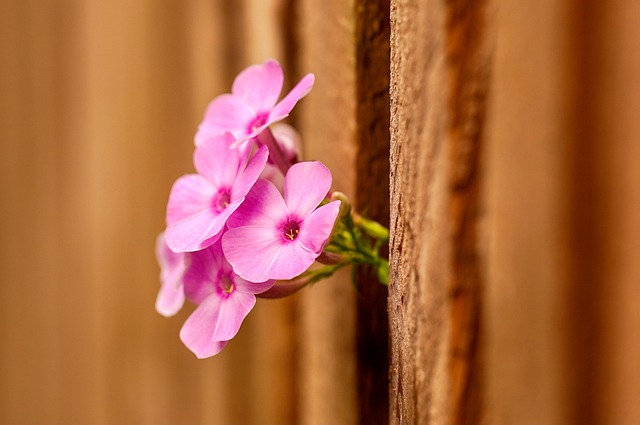New Bedford, MA residents increasingly seek sustainable solutions for their outdoor spaces, and eco-friendly fencing materials offer an appealing option. This article explores the diverse range of environmentally conscious fencing choices available in the region, highlighting their benefits for both yards and the local ecosystem. From enhanced landscaping to reduced environmental impact, these natural barriers not only beautify properties but also contribute to a greener community.
- Exploring Eco-Friendly Fencing Options in New Bedford
- Benefits of Sustainable Fencing Materials for Your Yard
- Natural Barriers: Enhancing Landscaping with Eco-Fencing
- Reducing Environmental Impact: Green Fencing Solutions
- Longevity and Aesthetics: Top Performing Eco-Fences
- Community Initiatives: Promoting Eco-Friendly Outdoor Spaces
Exploring Eco-Friendly Fencing Options in New Bedford
New Bedford, MA residents increasingly seek eco-friendly fencing options to align with their commitment to environmental sustainability and enhance outdoor spaces. Beyond traditional materials like wood and metal, a variety of green alternatives are transforming local landscapes. These include natural options such as bamboo, recycled plastic, and composted wood products, which not only reduce environmental impact but also offer unique aesthetic appeal.
Exploring these eco-friendly fencing choices allows homeowners to contribute positively to the local ecosystem while enjoying the benefits of durable, low-maintenance barriers that complement their homes’ exteriors. Moreover, many of these materials are designed to withstand New Bedford’s climate, ensuring longevity and continued environmental stewardship.
Benefits of Sustainable Fencing Materials for Your Yard
Incorporating eco-friendly fencing materials into your New Bedford, MA yard offers a multitude of benefits. Firstly, these sustainable options reduce environmental impact by minimizing waste and using materials that are naturally renewable or recycled. Unlike traditional fencing that often relies on non-biodegradable plastics or treated wood, eco-friendly choices like bamboo, reclaimed wood, and plant-based composites break down naturally over time, reducing the strain on local landfills.
Additionally, sustainable fencing materials can enhance the aesthetics of your yard while promoting biodiversity. Many eco-friendly options feature natural textures and colors that blend beautifully with surrounding landscapes, creating a harmonious outdoor space. Moreover, some materials provide habitats for local wildlife, encouraging birds and beneficial insects to visit your yard. By choosing these responsible alternatives, New Bedford residents can enjoy the beauty and security of their fences while contributing to a healthier environment.
Natural Barriers: Enhancing Landscaping with Eco-Fencing
Natural barriers have long been an integral part of landscaping design, offering both aesthetic appeal and functional benefits. When it comes to eco-friendly fencing, natural materials like wood chips, compost, and straw bales can act as effective and sustainable barriers. These organic options not only reduce environmental impact but also enrich the soil, providing a healthier ecosystem around your property.
In New Bedford, MA, where diverse landscapes meet vibrant communities, eco-fencing made from natural barriers can transform outdoor spaces. From defining garden edges to separating areas for pets or children, these sustainable solutions blend seamlessly with the surroundings. Moreover, they support local ecosystems by creating habitats for beneficial insects and wildlife, fostering a more balanced and resilient environment within the urban setting.
Reducing Environmental Impact: Green Fencing Solutions
In an era where environmental sustainability is at the forefront of many initiatives, the search for eco-friendly fencing materials has gained significant traction. New Bedford, MA, like many other communities, is embracing green solutions that not only enhance aesthetics but also contribute to a healthier planet. Traditional fencing options often leave a substantial carbon footprint due to the manufacturing processes and materials used. However, modern innovations have led to the development of environmentally conscious fencing alternatives.
These green fencing solutions offer a range of benefits, primarily by reducing the environmental impact. They are typically made from recycled or renewable resources, such as wood from sustainable forests, bamboo, or even plastic derived from post-consumer waste. This shift towards eco-friendly materials minimizes deforestation and pollution associated with traditional fencing production. Moreover, these green options often have a longer lifespan, reducing the need for frequent replacements, which further diminishes waste and conserves natural resources.
Longevity and Aesthetics: Top Performing Eco-Fences
Eco-friendly fencing materials are not only beneficial for the environment but also offer exceptional longevity and aesthetic appeal, making them a top choice for homeowners and landscape designers in New Bedford, MA. One of the most durable options is recycled plastic fencing, which can withstand harsh weather conditions and has a lifespan of 25 years or more, outperforming traditional wooden fences. This material is resistant to rot, decay, and rust, eliminating the need for frequent repairs or replacements.
Moreover, eco-friendly fences contribute to the overall beauty of outdoor spaces. Many modern designs feature natural, organic looks with textures that mimic wood grain, providing a seamless blend with surrounding landscapes. These fences can be customized to fit various aesthetic preferences, from rustic charm to sleek, contemporary styles. Their versatility makes them suitable for residential yards, commercial properties, and public parks alike, ensuring New Bedford maintains its green spaces while promoting sustainable practices.
Community Initiatives: Promoting Eco-Friendly Outdoor Spaces
New Bedford, MA, has been at the forefront of community initiatives aimed at promoting eco-friendly outdoor spaces. Local residents and organizations have actively sought sustainable alternatives for common landscaping materials, recognizing the environmental impact of traditional fencing. One notable trend is the increasing adoption of recycled content fences, such as those made from plastic bottles or wood waste products. These innovative materials not only reduce landfill waste but also offer long-lasting durability, making them a cost-effective and environmentally friendly choice.
Community gardens and green spaces have become hotspots for these eco-friendly fencing solutions, fostering a sense of togetherness while promoting sustainability. Schools and public parks in New Bedford are leading by example, integrating recycled fence materials into their infrastructure projects. This collective effort not only beautifies the city but also educates residents about sustainable living practices, ensuring that New Bedford remains a model for eco-conscious urban development.
